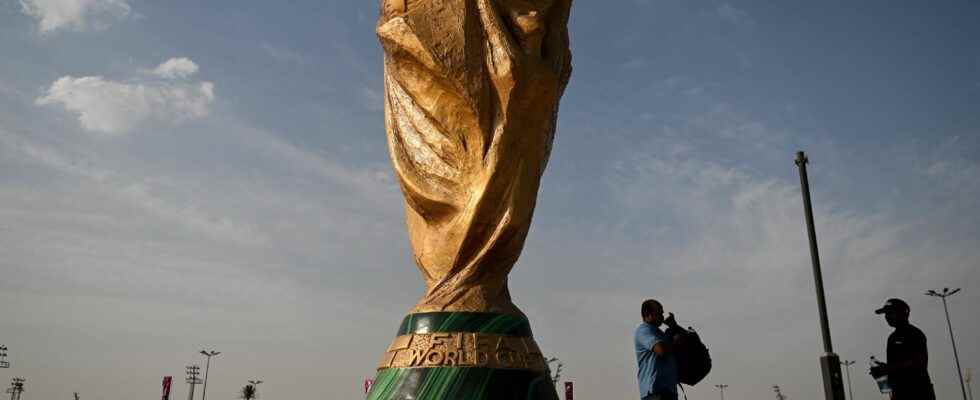In the Japanese restaurant Junko, in the heart of the upscale The Pearl district, the tables are empty. It’s 1 p.m. and three days from the World Cup final, manager Junko Takemoto is folding napkins for lack of customers. Since the end of the quarter-finals, Doha has regained its residential tranquility. “We benefited a lot from the economic benefits at the start of the competition, explains the one who settled in the Qatari capital ten years ago. There were a lot of Mexicans, Argentines or even Japanese who boosted our figure. business. It’s calmer now.” Thanks to the 1.2 million spectators expected by the final, the country expects 12 billion euros in direct benefits for the local economy, four times more than in Brazil in 2014 and twenty times more than in Russia. .
The big winners of the tournament? Accommodation professionals. In the halls of the hotels overlooking the port, Talabat delivery men, a sort of Qatari Deliveroo, parade at the foot of the elevators. Most are full until the day after the final despite an overnight stay which can go up to 10,000 euros. In order to facilitate the profits of the owners, who are mostly Qatari, the government has also removed the cap on rents from January 2022. On the shores of the marina, certain four-bedroom apartments have thus been put up for rent at a price of 350,000 euros per month. . As part of the “Qatar 2030” development plan, the executive dreams of making tourism an important axis of its prosperity.
But for many of the emirate’s self-employed the World Cup hasn’t changed much. Mani, an Uber driver, commutes daily between The Pearl and the capital. The daily life of this father is “as before”. In the comfort of his sedan, he works a dozen hours a day to earn 400 to 500 Qatari riyals, or about 130 euros. The soaring prices observed in hotels do not seem to be reflected in taxis or VTCs. The price of a race, even over an hour, rarely exceeds 30 euros.
“The World Cup has increased the appeal of Qatar”
But the real benefits will be measured in the long term. The country has spent 200 billion dollars from 2012 to 2022 for the World Cup, according to estimates by Deloitte. The emirate has used the organization of one of the biggest planetary events to accelerate its development and increase its attractiveness. Road infrastructure, hotels, metro… “Over the past ten years, we have built another Qatar. With new cities and new roads, enthuses Amer al-Mana, sales director for the manufacturer Stellantis in the peninsula. world has made Qatar more attractive to expatriates and investors. Personally, I am selling more and more cars to Americans or Egyptians who come to settle here.”
This first edition of the World Cup in the Arab world will be the worst in the history of the competition. She also tensed the International Federation of Association Football (Fifa), the organizer of the event. One of its biggest partners, the brewer Budweiser, was refused a few days before the start of the high mass of the round ball the sale of alcohol in the stadiums. The shortfall would be several tens of millions of euros for the American firm. The alcoholic plans to break his partnership with Fifa. The latter has pocketed a total of more than 6 billion euros, and remains the eternal big winner of the World Cup.
